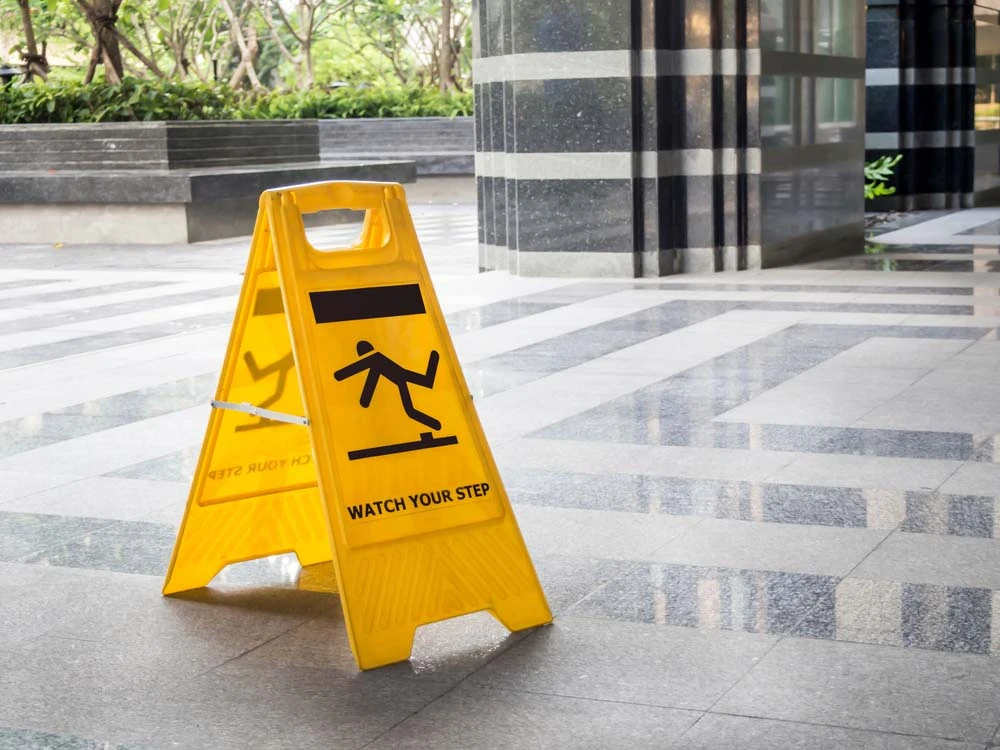
Public liability accident series
It is fairly common knowledge that a supermarket will be liable if you slip or fall on their premises and there is no warning sign alerting you to the potential hazard. However, what happens when there is a “wet floor” sign and you slip anyway, or you simply don’t see it? You may think that this means the incident was your own fault, but a case in New South Wales has removed this assumption. Even if there was a “wet floor” sign, you may still be able to pursue a public liability claim.
Supermarkets owe a duty of care to their shoppers to take reasonable care to prevent their injury whilst on their premises. Cases across numerous jurisdictions have repeatedly shown that the Court imposes a strict onus on both retailers and supermarkets to provide adequate systems of inspection, cleaning, and risk minimisation –to ensure that the premises under their control is safe for shoppers. In order to mount a successful public liability accident claim, the claimant simply has to show that reasonable steps could have been taken by the supermarket to prevent the happening of the accident.
An Example Case – Fitzsimmons v Coles Supermarkets Australia Pty Ltd [2013] NSWCA 273
In the New South Wales Court of Appeal decision of Fitzsimmons v Coles Supermarkets Australia Pty Ltd [2013] NSWCA 273, the Plaintiff went into Coles to buy a birthday cake for her daughter. The Plaintiff was carrying her daughter on her hip. She was wearing thongs and was hurrying. There was a dirty patch on the floor and a Coles staffer had been directed to clean it. Due to the mop that was used by the staff being new, it was not sufficiently absorbent. Accordingly, after placing three yellow triangular “wet floor” signs around the spill, the staff left the wet floor unattended to fetch some paper towel. In that one minute or so, the Plaintiff did not see the three warning signs and slipped.
The Trial Judge dismissed the Plaintiff’s claim on the basis that Coles had taken adequate precautions to warn its customers, and in particular the Plaintiff, of the slippery floor. At the Court of Appeal, the majority decided that a reasonable person in Coles’ position should have stationed someone at the area to direct customers away from the slippery floor in addition to placing the three warning signs. The signs were not adequate to warn less attentive customers, who may have been looking at the aisles rather than the floor. The majority took the view that to have another staff member stand by the area to warn customers until the original staffer returned with the paper towel, would not have placed an undue burden on Coles, and Coles was found negligent for not doing so.
Importantly, the fact that the Plaintiff was wearing thongs on the day of the incident, carrying a baby on her hip, and distracted by the items on the shelves, did not make her contributorily negligent. Basten JA commented that there was no evidence that the soles of thongs were inherently more slippery than those of regular footwear. His Honour also remarked that that customers at supermarkets or other retail premises are entitled to be distracted by the items displayed. In other words, it was common for customers to be looking at the shelves and not the floor.
Nevertheless, the Court found the Plaintiff 50% contributorily negligent for failing to notice the bright yellow warning signs. Regardless of this, Coles did not wholly escape liability and bore 50% of the liability for failing to station a staffer around the wet area in order to warn customers of the potential danger.
This decision has a significant impact on public liability claims in supermarkets, the inadequacy of warning signs to completely absolve retailers of their responsibilities to their customers and the way a Court may view contributory negligence in similar circumstances. If you have had a slip or fall at a supermarket in which warning signs were present, you may wish to re-consider whether you could be entitled to compensation.
 Call Us Today
Call Us Today



